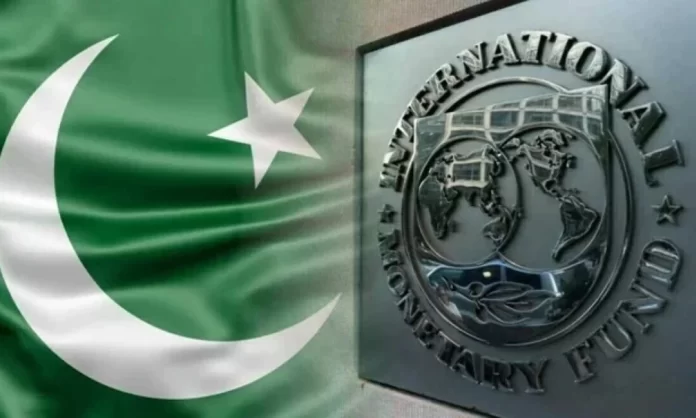ISLAMABAD: The International Monetary Fund (IMF) is set to hold unscheduled performance review discussions with Pakistan next week, with a major focus on bridging the $2.5 billion external financing gap for the current fiscal year. The IMF will assess the country’s financing needs as several planned loans remain unfinalized, according to government sources.
Led by IMF Mission Chief Nathan Porter, the talks are scheduled to begin on Tuesday, with an opening session involving Finance Minister Muhammad Aurangzeb. Although the discussions are not part of the regular review cycle, which is set for March 2025 for the second $1.1 billion tranche, the visit is crucial for evaluating Pakistan’s progress on securing financing and managing its fiscal challenges.
Pakistan has faced delays in obtaining loans from bilateral creditors, complicating efforts to address the external financing gap. While the IMF initially projected a $5 billion external gap for the 2024-2027 period, $2.5 billion of this is expected to be for the current fiscal year. However, authorities believe the gap may be smaller than previously estimated due to improvements in exports and remittances, which have helped ease external account pressures.
Despite this, Pakistan still requires loans to meet its debt obligations, particularly with Western financial institutions. When Pakistan secured a $7 billion loan package, it had anticipated raising $3.2 billion, including a $1.2 billion Saudi oil facility. However, five months into the fiscal year, no agreement has been reached on the Saudi facility, and each month of delay costs Pakistan $100 million in available funds. Authorities remain hopeful that Saudi Arabia will extend the facility, though the Finance Ministry has not commented on the issue.
Pakistan is also pursuing a $1 billion loan from Dubai Islamic Bank and has requested China to reschedule $3.4 billion in debt, including $750 million due this fiscal year. However, Pakistan’s weak financial position and restrictions under the IMF agreement limit its ability to repay Chinese debt, especially the $3.9 billion in commercial loans maturing this year. Efforts to roll over a $200 million debt due in September were successful, but the next $1 billion payment due in March 2025 remains unaddressed.
One of the key issues the IMF will scrutinize during the visit is Pakistan’s tax collection performance. Official figures show a Rs190 billion shortfall in tax revenue for the past four months, with the Federal Board of Revenue (FBR) collecting Rs3.44 trillion against a target of Rs3.63 trillion, despite record-high taxes this year. Sources suggest the IMF will closely examine Pakistan’s macroeconomic framework and revenue projections, especially after the government reported that key assumptions underpinning the Rs13 trillion tax target have fallen short.
In addition, the government’s failure to meet tax targets under the Tajir Dost Scheme, which aimed to collect Rs10 billion from traders, is likely to be another point of contention. Although the Finance Minister recently claimed that Rs10 billion had been collected, sources clarify that any taxes collected from non-registered traders do not count towards the IMF’s target.
Moreover, provincial governments have missed the deadline to legislate higher agriculture tax rates, a key requirement under the IMF’s conditions. The delayed implementation of these reforms, coupled with ongoing challenges in coordinating federal and provincial efforts, could hinder Pakistan’s compliance with IMF expectations.
The IMF’s visit also comes amidst concerns over the National Fiscal Pact, signed by federal and provincial finance ministers, which diverges from the initial agreements made during the approval of the $7 billion package. Notably, social protection spending, including funds for the Benazir Income Support Programme, has been excluded from the pact, while the restructuring of government structures and federal-provincial project transfers depend on the approval of the National Economic Council.
With a growing set of financial challenges, Pakistan will need to demonstrate significant progress in securing external financing and meeting IMF targets to stabilize its economy and maintain access to critical financial support.




